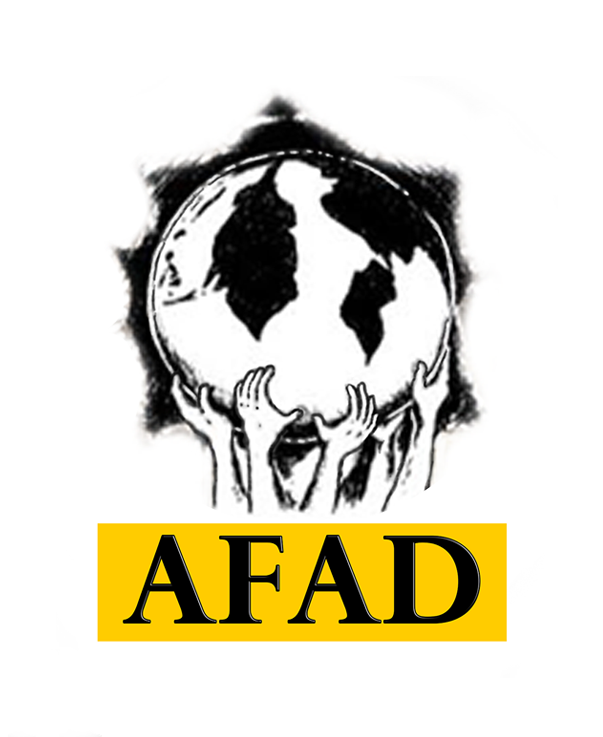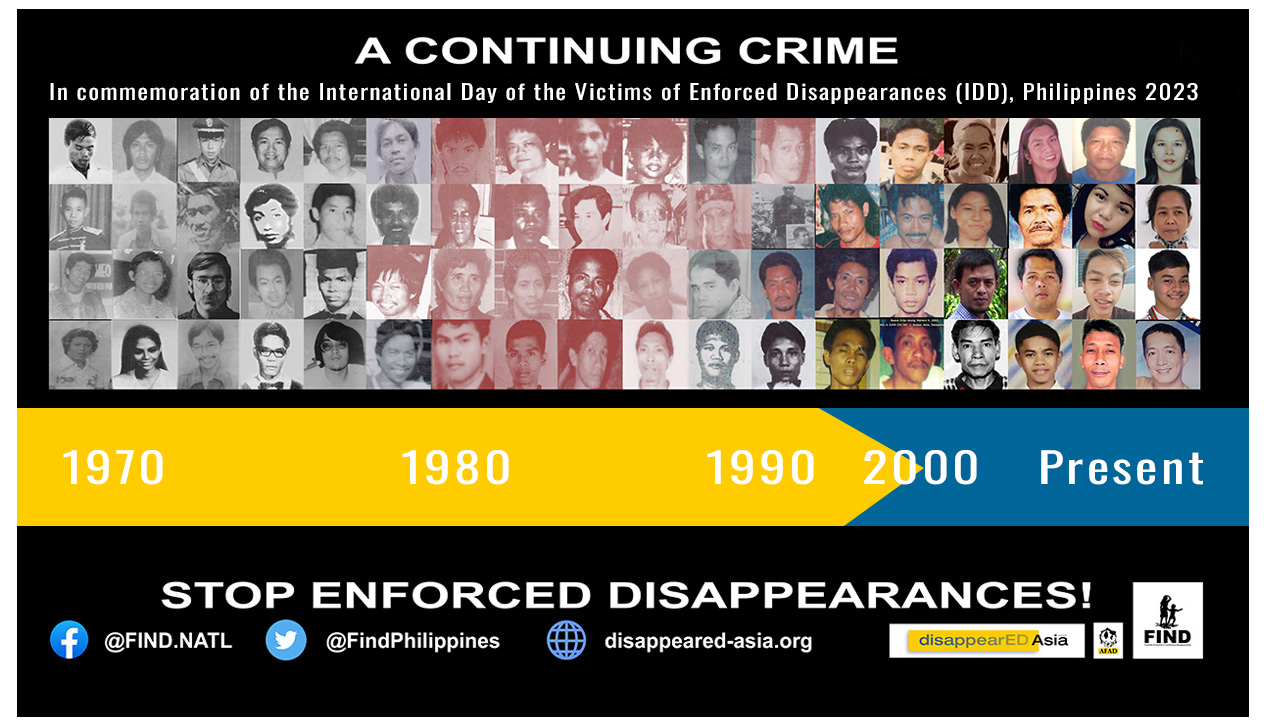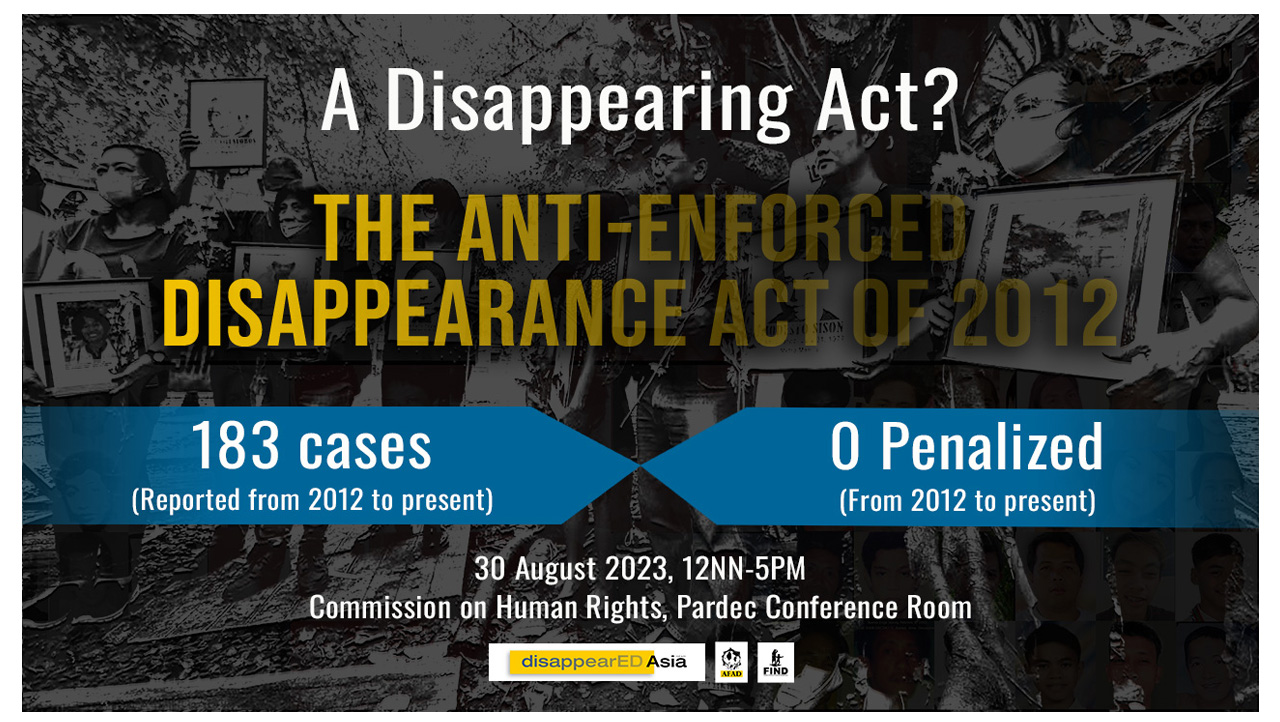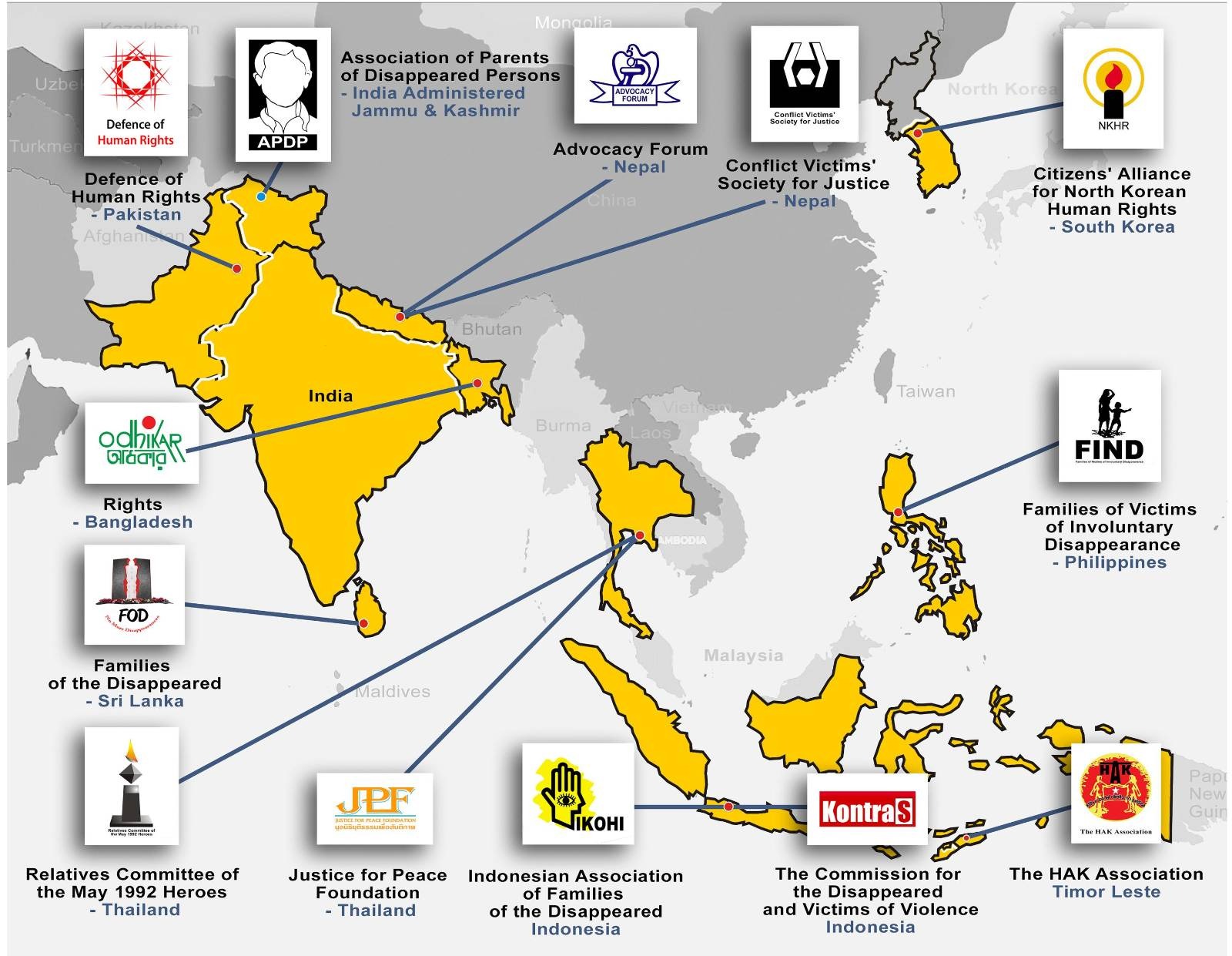What's Happening
AFAD Solidarity Statement on the Launch of a Research Report: Alleged Perpetrators – Stories of Impunity in Jammu and Kashmir
11 December 2012 - The Asian Federation Against Enforced Disappearances (AFAD), a regional federation of human rights organizations working directly on the issue of enforced disappearances lauds the attached release of the research “Alleged Perpetrators – Stories of Impunity in Jammu and Kashmir,” painstakingly undertaken by the International Peoples’ Tribunal on Human Rights and Justice in Indian-Administered Kashmir [IPTK] and the Association of Parents of Disappeared Persons [APDP].
Respect the Right NOT to be Disappeared!
AFAD Statement on the International Human Rights Day 2012
Today as the world commemorates the 64th Anniversary of the Universal Declaration of Human Rights (UDHR), the Asian Federation Against Involuntary Disappearances (AFAD) joins the families of the disappeared and other human rights groups in the call for the full respect of the right not to be subjected to enforced disappearances.
However, 64 years after the adoption of the UDHR in Paris, France, thousands of people around the world are still forcibly made to disappear by their own governments and are placed in illegal and unknown detention centers while their families are left with no means to seek truth and demand for justice.
Break Impunity: Anti-Enforced Disappearance Law Now!
Joint Statement
We strongly urge President Benigno Simeon Aquino III to sign into law the Anti- Enforced Disappearance bill on Monday, December 10, 2012, as we commemorate the International Human Rights Day, to show his administration’s clear resolve to uphold human rights and end impunity.
There is no better day for the President to reaffirm his commitment to human rights and vow to end enforced disappearances than on this day as the world observes the 64th Anniversary of the Universal Declaration of Human Rights – the first universal recognition of our fundamental rights and freedoms as human persons.
AFAD Condemns Arrest of Family Members of Disappeared and FOD Members at the Conclusion of its Council Meeting
Colombo, Sri Lanka - The Asian Federation Against Involuntary Disappearances (AFAD) concluded its week-long Council Meeting in Sri Lanka with a solidarity night together with local civil society organizations and family members of the disappeared. The night of sharing, video presentation, music and dancing ended with the arrest of six persons, including two elderly women family members of the disappeared, Ane Teresa Fernando and Ariyawathi de Silva; the Secretary of the Families of the Disappeared (FOD), Wasantha Ranile Kumara; Executive Director of the Right to Life, Mr. Philip Dissanayake; a vehicle driver and a friend. Their laptops, mobile phones and the key to the vehicle of Mr. Dissanayake, with plate number 59-9700 were taken into police custody. The victims were put into a police jeep by uniformed policemen, including the Headquarters Chief Inspector in Negombo, and another policeman who introduced himself as Assistant Superintendent of Police, but was plain clothed. Witnesses took the following official police numbers: 89218; 79573; 89568; 10701; 51717.

 Asian Federation Against
Asian Federation Against 

